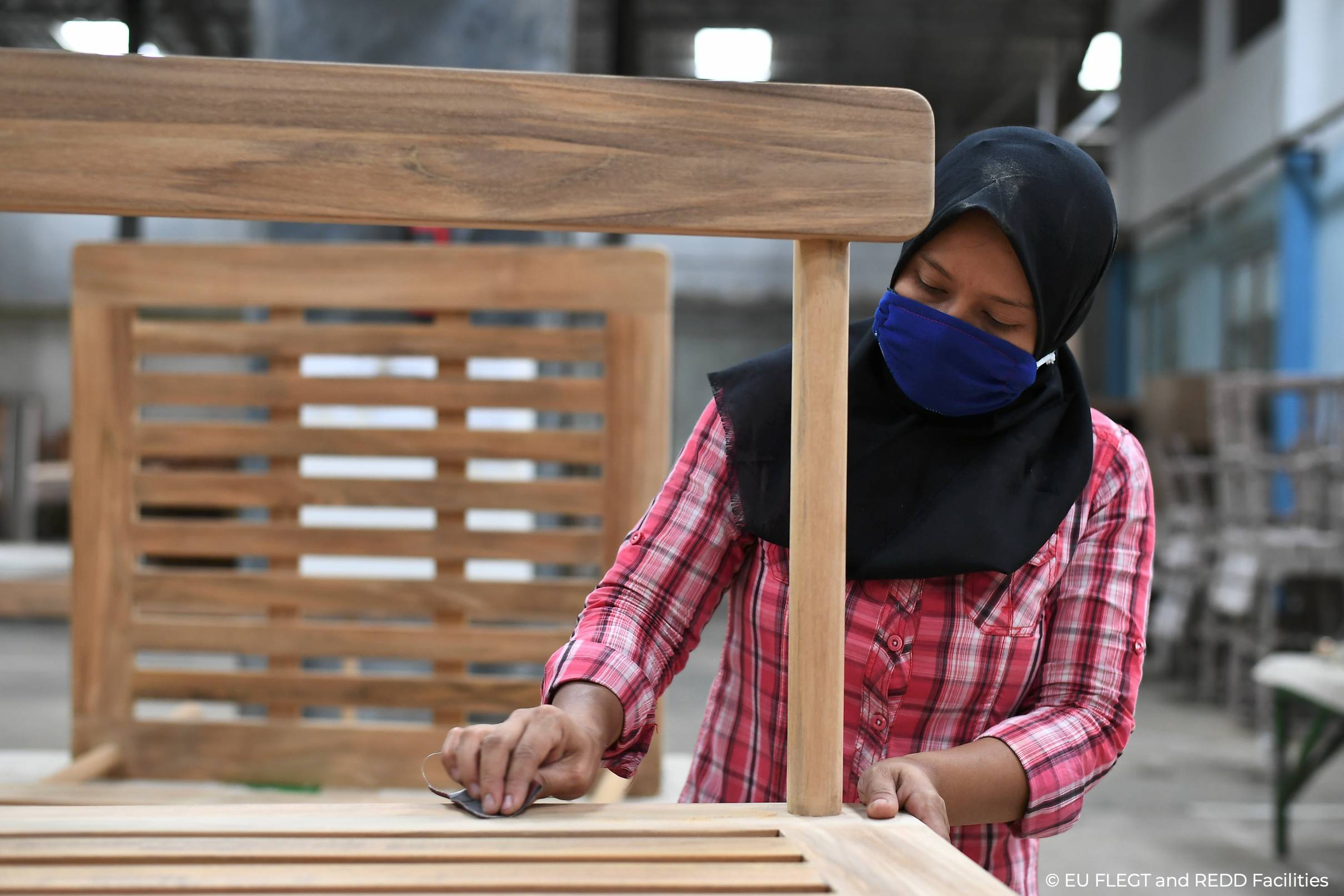
Over the past decade, Indonesia has played an active role in mainstreaming Sustainable Consumption and Production (SCP) both in policies and implementation, accelerating and strengthening its Green/Sustainable Public Procurement (G/SPP) system.
The EU SWITCH-Asia Programme in partnership with Ministry of Environment and Forestry (MoEF/KLHK) has been instrumental in assisting the country in its shift towards SCP. Together with its partners from concerned government agencies, industry associations, and stakeholders, SCP was incorporated into the National Medium-Term Development Plan 2015-2019 focusing on 3 key approaches:
- Collective investment on SCP knowledge at national level;
- Innovative collaboration approach to showcase and upscale SCP best practices;
- Creation of a critical mass of SCP practitioners.
The Indonesian Roundtable on Greening the National Development Plan was also initiated in 2013.
Through the SWITCH-Asia Grants Programme, nine pilot projects in Indonesia have been implemented and completed focusing on supporting SMEs on sustainable value-chain and production systems of selected products (agri-food, wood and textiles), lead paint elimination, financial schemes for eco-innovation, and two ASEAN projects on energy efficiency. Three grant projects are currently ongoing and focusing on sustainable food systems, sustainable solutions of fish consumption and production, and sustainable cleaner development through housing and building construction.
The Government of Indonesia is also playing an active role at the sub-regional level, leading the development of an ASEAN SCP Framework through the support provided by the SWITCH-Asia Regional Policy Advocacy Component (RPAC).
To attain the SCP and G/SPP objectives outlined in the Indonesian National Medium-term Plan and the G/SPP Roadmap, the SWITCH-Asia SCP Facility and GIZ Advance SCP are supporting the Ministry of Environment and Forestry through the project “Enhancing SCP through the implementation of G/SPP and the preparation of a long-term action plan for G/SPP in Indonesia.” A market readiness analysis will be prepared and G/SPP Plans for two pilot sectors, namely, wooden furniture and paper industries, are expected to be developed.
This Project was launched on 24 July 2020 and 25 participants from the Ministry of Environment and Forestry, the National Procurement Agency (LKPP), the Paper Industry Association, the Furniture Industry Association, SWITCH-Asia Experts, GIZ Advance SCP, and the EU Delegation to Indonesia attended the meeting.
Mr. Noer Adi Wardojo, Head of the Center for Environmental and Forestry Standards (CEFS), MoEF/KLHK highly recognised the importance of the work conducted under the SWITCH-Asia programme to enable the transformation of the industry sector towards green and sustainable sourcing and production, while driving responsible consumption from government and society. The Ministry of Environment and Forestry, the National Procurement Agency, and paper and furniture industry associations all expressed their willingness to support SWITCH-Asia activities by actively participating in the data gathering process for the market analysis study.

SWITCH-Asia Expert, Ms. Karin Merle, introduced in more detail the market analysis study for paper and furniture industries and explained that this will be of critical importance to drive recommendations for additional sub-products to be included in the G/SPP under the project’s scope. The study will contribute to the long-term action plan that will ensure a comprehensive approach to institutionalising and reforming G/SPP in Indonesia to be led by GIZ Advance SCP in partnership with KLHK, LKPP, Bappenas, and other stakeholders.
Ms. Novita Sari from the EU Delegation to Indonesia further explained that Indonesia and the EU have both ratified the Voluntary Partnership Agreement (VPA), a legally binding trade agreement that aims to ensure that only legal timber and timber products from Indonesia reach the EU market. The Management and Marketing of Forest Product Directorate (PPHH) General for Sustainable Forest Product, MoEF, also suggested to include in the study a situational analysis of the EU-Indonesia trade relations when it comes to furniture and paper products. The importance of sharing good practices and experiences from the EU, particularly on the EU ecolabel criteria and sustainability strategies, was also raised by Indonesian stakeholders.
Follow-up meetings with government agencies, industry associations and stakeholders are currently being conducted to gather the data that will be published in the market analysis study which is expected to be completed by the end of November 2020.
For more information contact:
Loraine Gatlabayan
Key Expert, Southeast Asia
SWITCH-Asia SCP Facility


